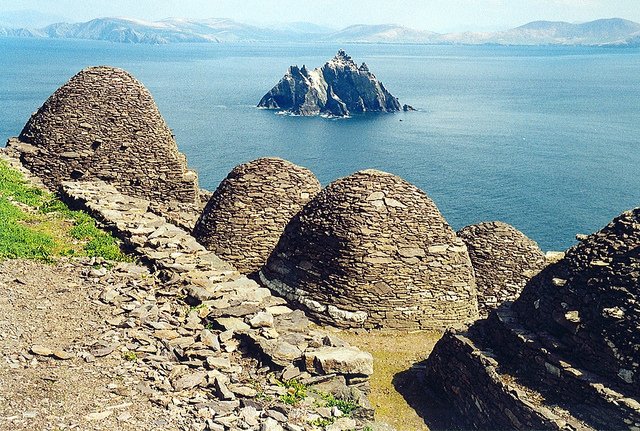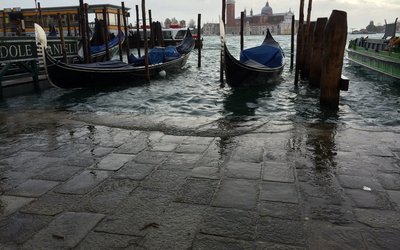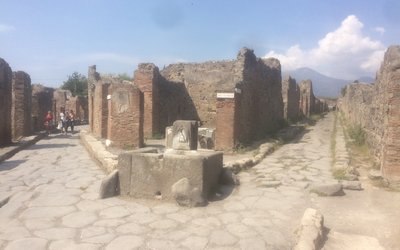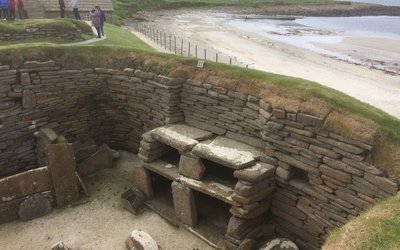
Photo: Skellig Michael World Heritage at the southwest coast of Ireland (Photo: Arian Zwegers, www.flickr.com)
Climate change may affect our cultural heritage. Impacts typically include sea level rise; flooding; coastal erosion; changing air and sea temperatures; changing humidity; extreme weather events such as hurricanes, storms, and droughts; weathering; and changing soil and sediment conditions. A comprehensive understanding of the impacts of climate change on cultural heritage is noticeably absent from the literature, however. A first global systematic literature review of the link between cultural heritage and climate change was published recently. This review shows that the earliest research paper on climate change-induced impacts on cultural heritage was published in 2003. Since then, the annual number of publications of climate change and cultural resource and heritage research increased significantly.
Cultural heritage includes both tangible and intangible heritage. Tangible heritage includes historic environments, buildings, structures, objects, materials or fabrics, and archeological sites and remains. Intangible heritage includes cultural landscape, traditional knowledge, and cultural identity.
Remarkably, the highest number of publications globally on this subject is related to European contexts (59%). Far less publications focused on other continents: North America (17%), Australia and Oceania (11%), Asia (10%), South America (2%), and Africa (1%). Nearly half of the European studies are related to cultural heritage and resources in Northern Europe, with the majority referencing the United Kingdom.
The global literature review highlights important knowledge gaps in the reviewed publications. First, more research is needed on efficient short- and long-term sustainable adaptation planning that mitigates damage and enhances preservation of non-renewable cultural heritage and resources. Secondly, emphasis is needed on the capacity of cultural heritage and resource managers to prepare for and deal with the consequences of climate change. Clearly, it takes considerable coordinated effort to manage, preserve, and adapt cultural heritage and resources under climate change.
Source: Fatorić and Seekamp, 2017. Climatic Change 142: 227-254.








